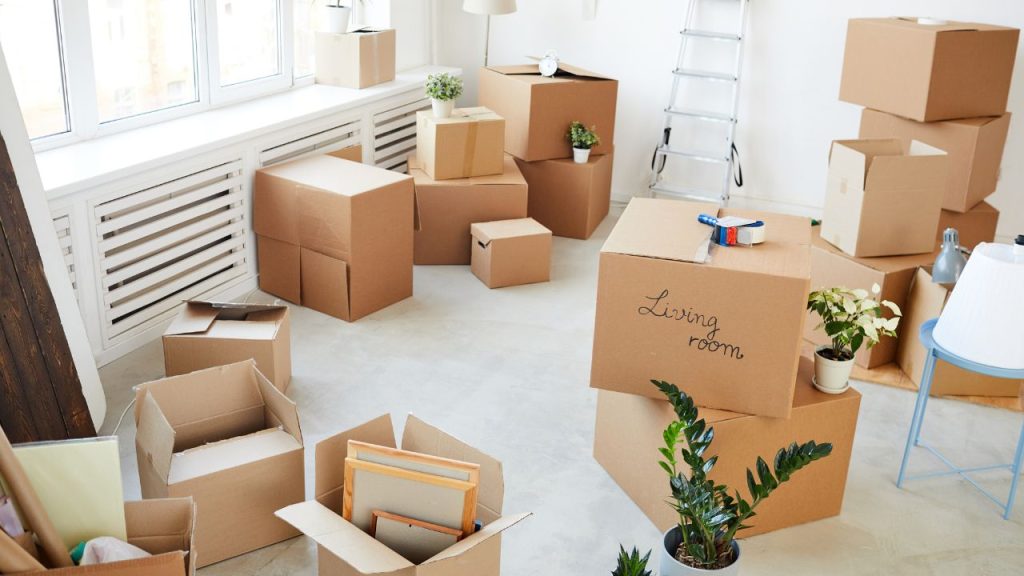Renovating your home is an exciting yet challenging endeavor. It’s an opportunity to breathe new life into your living space, making it more functional, comfortable, and stylish.
Before diving into the renovation process, one key aspect to consider is decluttering your home.
This step can ease the process immensely, reduce chaos, and ensure a smoother transition to your dream home.
Decluttering before renovations is about creating extra space for construction activities and supplies and evaluating and prioritizing your belongings.
By taking the time to declutter, you’ll gain a better understanding of what items are essential to your daily life and which ones can be let go, donated, or sold.
This mindful exercise will allow you to design and plan your renovation around your most valuable and cherished possessions.
Embarking on a decluttering mission before renovations offer additional benefits, such as addressing any hidden pest issues and giving you a more organized environment post-renovation.
So, as you plan your home renovation, remember to set aside time for decluttering and enjoy the benefits of a well-curated, organized space as you transform your home.
1. Tips on Decluttering Various Spaces

Bedroom Decluttering
Decluttering your bedroom will help create a space that is calming and restful. Start by removing clothes, shoes, and accessories no longer needed or wanted.
Sort through your wardrobe and drawers, creating separate piles for items to keep, donate, or discard.
Pay special attention to your bedside table and under-the-bed storage, as these areas can become cluttered with miscellanea like books and electronics.
Kitchen Decluttering
A well-organized kitchen makes mealtime preparation an enjoyable task. Try these friendly tactics for reordering your space.
Empty your pantry and cabinets, sorting items into three categories: keep, donate, or toss. For small appliances, evaluate their frequency of use and eliminate any that you don’t use regularly.
Organize drawers and cabinets to keep similar items together, like utensils and baking tools. Finally, purge your kitchen of expired or rarely-used ingredients that may take up precious space.
Garage Decluttering
A cluttered garage can hinder your ability to locate essential items or park your vehicle.
Begin your garage decluttering by separating items into categories such as tools, automotive supplies, garden equipment, toys, and furniture.
Once everything is sorted, assess whether you need to keep, donate, or dispose of each item.
Consider installing wall-mounted storage or shelving to organize items more effectively and save floor space.
Loft Decluttering
Lofts or attics are often home to household items that have long been forgotten. Ensure you use this valuable space wisely by decluttering and reorganizing your belongings.
Begin by removing everything from your loft, then sort and categorize items based on their purposes, such as holiday decorations, keepsakes, or linens.
Decide which items should be kept, donated, or discarded, and consider using labeled storage containers or shelving to keep things organized and accessible.
Bathroom Decluttering
A clutter-free bathroom is essential for a refreshing daily routine. Start by emptying all cabinets and drawers and sorting their contents into piles for keeping, donating, or tossing.
Discard expired medications or personal care products. Review your linens and towels, only keeping those in good condition.
Organize your remaining items logically, placing frequently-used items within easy reach and occasional-use items in less accessible areas.
2. Dealing with Different Items

Clothes and Linens
When decluttering your clothes and linens, sort them into three piles: keep, donate, and toss.
Keep the items you still wear and use, donate gently used items to charity, and toss anything worn out or damaged.
Consider using a clothes rail for easy access and visibility to organize your clothes.
Kitchen Appliances and Cooking Tools
Evaluate which small appliances and tools you use in your kitchen. Sometimes, less is more. Keep the essentials, and consider donating or discarding rarely used items.
Organize your kitchen space efficiently by allocating designated storage areas for frequently used items.
Toys and Children’s Items
Involve your kids in the decision-making process for toys, games, and children’s items. Encourage them to choose the things they genuinely love, play with, and let go of the rest.
Donate gently used toys to local charities or toy libraries and discard broken or damaged items.
Furniture and Larger Items
When it comes to furniture, evaluate its functionality and necessity in your renovated space. If you have no longer needed items or don’t fit your new layout, consider selling or donating them.
Measure your furniture to ensure it fits comfortably in the updated space before making decisions.
Electronics and Valuables
Take inventory of your electronics and valuables, such as sentimental items and memories. Store important documents, collectibles, and precious memories securely during renovation to avoid damage or loss.
With electronics, recycle or donate outdated technology and organize cables and chargers for easy access.
3. Organizing and Storing Cleared Items

Before starting your home renovation, it’s crucial to declutter and organize all your belongings.
This process can make your renovation go smoother and help you better understand what you want in your new space.
Here are some tips on organizing and storing cleared items during renovations:
First, sort your items into three categories: keep, donate, and toss. This will help you determine which items you want to store and put back in your renovated home and which ones you no longer need.
Once you have sorted your items, start packing the ones you want to keep. Use cardboard boxes for lightweight items and plastic storage boxes for heavier or fragile items.
Opting for transparent storage boxes can make it easier to identify the contents, saving you time when unpacking.
If you have an extensive collection of wine, consider using specialized wine storage solutions to store your bottles safely and maintain their quality throughout the renovation.
Consider investing in a secure storage locker for valuable or delicate items that require extra protection. This will ensure these items are safe from potential damage during the renovation process.
Remember to label each box clearly, indicating its contents and the room it will eventually belong to.
This will make the unpacking process more manageable and help you identify which items to prioritize during the post-renovation organization phase.
READ MORE: The Role of Planning in Successful Home Renovation
4. Helpful Tools and Supplies for Decluttering

Decluttering can be a daunting task, especially before big renovations. But having the right supplies can make all the difference.
Trash and Donation Bags
You’ll need sturdy trash bags to collect all the items you plan to discard or donate. Choose black bin bags that can hold a decent amount of weight without tearing.
These are perfect for decluttering as they can be stored in a small space but still provide enough storage for trash and donations.
Storage Boxes
Having a few different types of storage boxes on hand is essential to keep your possessions organized and safe.
Cardboard boxes are great for lightweight items or belongings you’ll frequently use during or after the renovations.
For more valuable or delicate items, consider investing in plastic storage boxes. These provide extra protection and can stack neatly to save space.
Here are some storage box options to consider:
- Cardboard boxes: Economical and suitable for temporary storage.
- Plastic storage boxes: More durable, waterproof, and stackable for long-term storage.
Organizing Tools
Having the right organizing tools can make the decluttering process a breeze. Some essentials include:
- Labels: Use labels to identify the contents of your storage boxes, making it easier to find items when needed.
- Tape: Packing tape is crucial for sealing cardboard and plastic boxes securely so they don’t accidentally open during renovations.
- Markers: Use a marker to write on labels or directly on the storage boxes if they’re made of a material that can handle it.
5. When to Get Professional Help

Consider hiring a professional organizer if you’re moving during or before renovations.
Moving can be stressful, so removing some of that burden by having a professional organizer help you efficiently sort, pack, and declutter is a wise investment.
Members of the Association of Professional Declutterers and Organisers (APDO) have specific training and skills in decluttering and organization, making them an excellent resource for ensuring your move is as seamless as possible.
In most renovation projects, you will need a professional contractor’s services to manage the work needed.
A contractor will oversee various aspects of the renovation and ensure the project runs smoothly from start to finish.
Their experience and expertise can save you time, money, and potential headaches by managing the logistics, hiring workers, selecting materials, and keeping the project on schedule.
For significant renovations or construction work, renting a dumpster may be necessary to handle the debris and discarded items from your project.
If you live in Chattanooga, finding a trusted Chattanooga Dumpster rental provider is simple. You may even find services that provide same-day delivery and disposal.
They will also recommend the best approach to sorting and disposing of items in an efficient and environmentally friendly manner.
In conclusion, knowing when to seek professional help with decluttering is crucial in ensuring a successful renovation experience.
Whether moving, rearranging your space, or undertaking construction, don’t hesitate to call in the experts for guidance and support.



